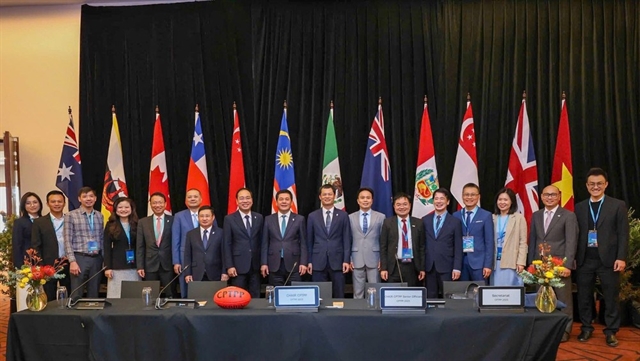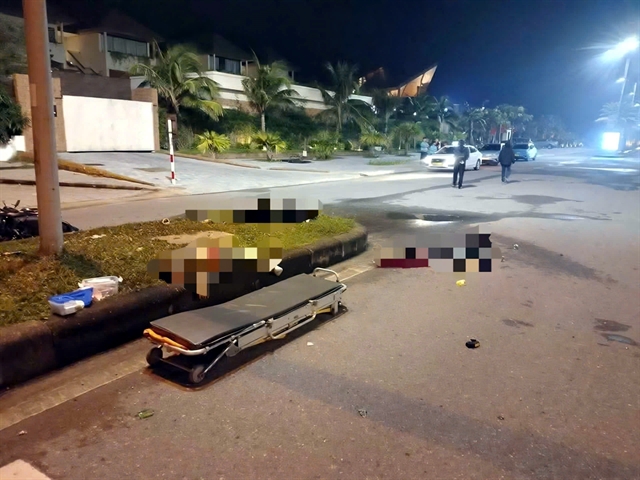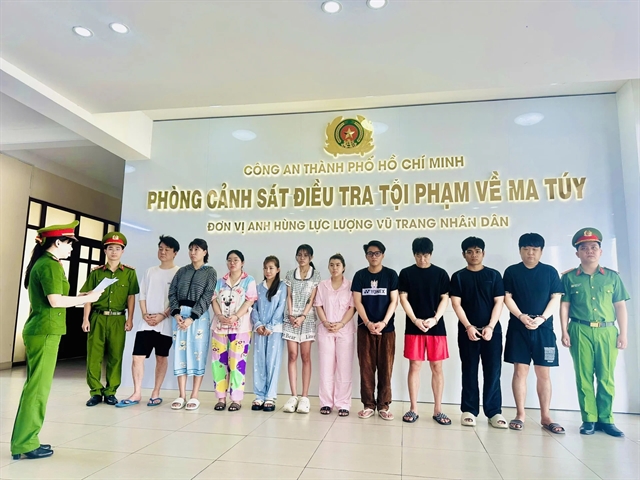 Society
Society
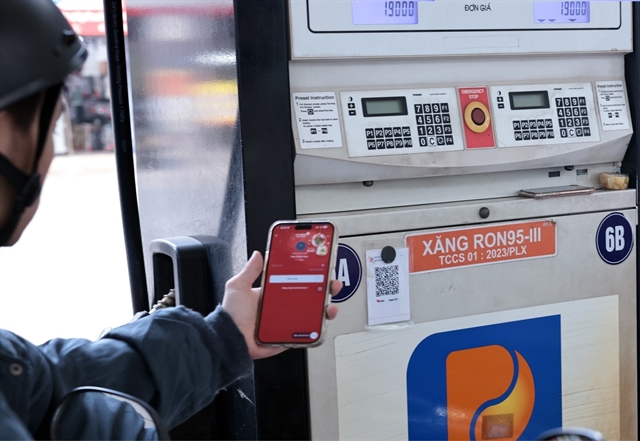
Việt Nam has been seeking closely co-operation with foreign partners in sharing stem cell transplant skills as well as building up banks of marrow and bone marrow transplant for saving more patients in the future.
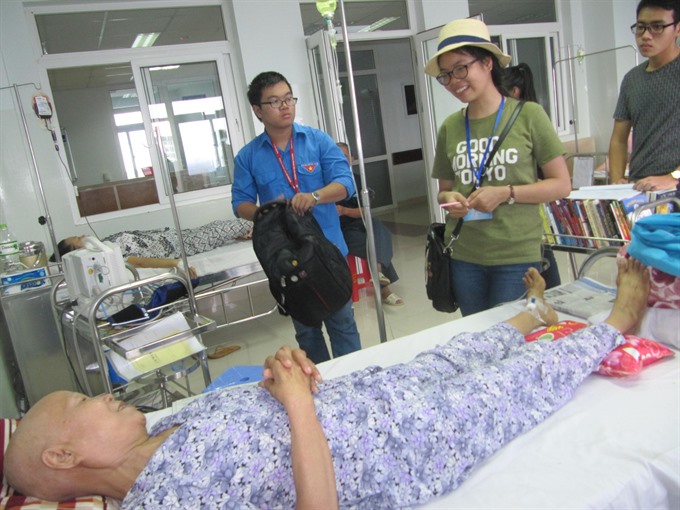 |
| A cancer patient receives treatment at the Đà Nẵng Oncology. — VNS Photo Công Thành |
ĐÀ NẴNG — Việt Nam has been seeking closely co-operation with foreign partners in sharing stem cell transplant skills as well as building up banks of marrow and bone marrow transplant for saving more patients in the future.
Dr. Phù Chí Dũng, director the HCM City Blood Transfusion and Hematology Hospital, said on sideline of the 5th Vietnamese-French Open Blood Transfusion and Marrow Transplantation Congress in Đà Nẵng on Friday.
Dũng said since the first case of an allogeneic bone marrow transplant in Việt Nam was successfully performed in 1995, more than 286 patients have had stem cell transplantation across the country, and nine centres in nationwide had carried out hematopoietic stem cell transplantation.
“We have yet built up stem cell banks to offer more chances for patients in Việt Nam. We also have limited donors domestically, so the co-operation with foreign partners would help us more sources for marrow transplantation,” Dũng said.
He said Vietnamese doctors were able to perform all procedures of stem cell transplantation, and more successful cases have seen increasing since 2006.
According to Dũng, Việt Nam is able to conduct most organ transplants, though the greatest problem is a shortage of organ donors.
He added that the congress was a good opportunity for Việt Nam sharing experience with international experts and doctors in skills and studying cases of leukemia, cancer, thalassemia and blood transfusion.
Dũng said the congress, which drew the participation of 500 participants, heard 30 reports from professors and experts who are working at bone marrow transplant centres in France, the US, Belgium, Japan, China, Singapore, Canada and Chinese Taipei.
According to experts, stem cells technology has been researched in Việt Nam since the beginning of 1990s, and the first case of marrow transplantation took place in HCM City in 1995. Stem cell research and application in Việt Nam has included blood stem cell taken from bone marrow, umbilical cord blood, umbilical membrane and stem cells taken from rat’s testicles and embryos.
The 5th Congress included scientific topics in hematology treatment, cancer treatment, human leukocyte antigen (HLA) testing, blood transfusion and transfusion in stem cells transplant, marrow transplant complications, post-surgery life of patients, and stem cells bank establishment.
Prof. Jean Chung Minh from Grenoble Hospital, France, said "After 10 years of co-operation with HCM City Blood Transfusion and Hematology Hospital (BTH), many actions have been carried out by the desire to do well on both sides. The project’s success is due to the dynamism, the long-term vision of Dr Dũng who knows how to surround him with dedicated collaborators, who is always on the lookout for progress outside the borders and who encourages young people to go abroad to observe and learn what is best for the hospital to serve patient.”
He said more supports will be carried out for BTH projects, and young doctors will be trained at Grenoble hospital.
He said professors and teachers from both sides have also confirmed training programmes for Cambodian and Lao doctors as well as French medical students with remote consulting will be provided from Department of Hematology-Cancer in Grenoble to transfer treatment methods and assist with establishing new hospitals.
Figures from the National Co-ordination Centre showed that the number of people who have registered for organ donation was about 2,350 as of the end of 2016.
About 1,116 kidney transplants, 48 liver transplants, 13 heart transplants and a heart-lung as well as a kidney-marrow transplant had been conducted in Việt Nam.
Last year, the US’s American Journal of case reports announced the world’s first successful application of bone marrow mononuclear cells transplant to treat bronchopulmonary dysplasia at the Vinmec Medical System in Hà Nội, Việt Nam.
According to a report from Thalassemia International Federation (TIF), seven per cent of the world population had Thalassemia gene carriers, and from 300,000 to 500,000 new-born babies suffered thalassemia (a blood disorder in which the body makes an abnormal form of hemoglobin) disease.
TIF also reported that there were 20,000 Vietnamese people had been suffered serious thalassemia, and 2,000 new-born babies got the disease, while 10 million people had Thalassemia gene carriers. — VNS
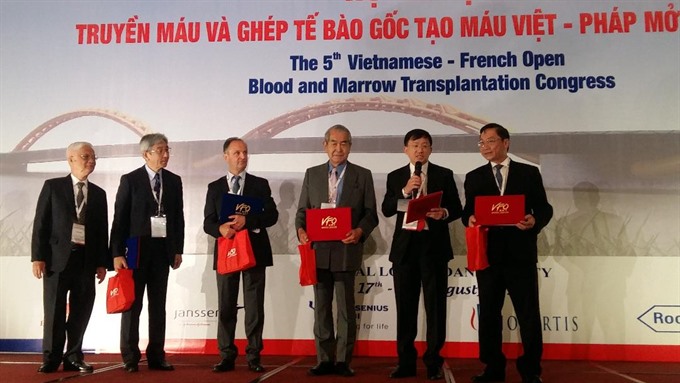 |
| Key skeakers at the Vietnamese-French Open Blood Transfusion and Marrow Transplantation Congress in Đà Nẵng on August 17-18. — VNS Photo Công Thành |

